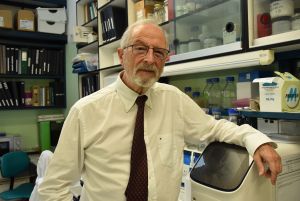Throughout his career, Enjuanes has published more than 235 articles in international journals and 58 book chapters. He was a Fogarty Visiting Fellow at the US National Institutes of Health (NIH), and a visiting scientist at the US National Institutes (NIH) Center for Cancer Research (FCRC). He is a professor of Virology at the Autonomous University of Madrid and the Pasteur Institute in Paris. He has been appointed Senior Distinguished Virologist by the Spanish Society of Virology, Academic of the Royal Academy of Exact, Physical and Natural Sciences, and Academic of the North American Academy of Microbiology. He is also an Expert Consultant for the NIH and the World Health Organization, and has been editor-in-chief of Virus Research. This summer he received the Spanish Medal of Merit in Research and University Education awarded by the Spanish Ministry of Science and Innovation.
The National Academy of Sciences
The National Academy of Sciences (NAS) is a private, non-profit society of distinguished scholars that is charged with providing independent, objective advice to the nation on matters related to science and technology. Currently, it is formed by 2461 outstanding elected by their peers. The USA National Academies of Sciences, together with the Engineering and Medicine Academies, provide independent, objective analysis and advice to the nation and conduct other activities to solve complex problems and inform public policy decisions. The National Academies also encourage education and research, recognize outstanding contributions to knowledge, and increase public understanding in matters of science, engineering, and medicine.
This year, 120 scientists have been elected to join the NAS, in addition to 30 international members. Victoria Reyes, from the Environmental Science and Technology Institute from the Universidad Autónoma de Barcelona has also been elected this year. They join other seven NAS international members of Spanish origin: Juan Luis Arsuaga (UCM), Mariano Barbacid (CNIO), Esteban Domingo (CSIC), Antonio García Bellido (CSIC), Francisco Guinea (Imdea Nanoscience) and Ginés Morata (CSIC).






